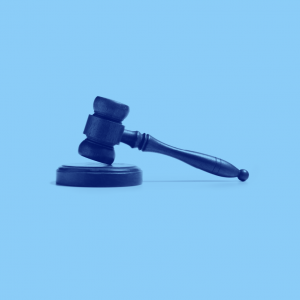Politics dictionary
Fourth Amendment
or 4th Amendment [ fohrth uh-mend-muhnt ]
What is the Fourth Amendment?
The Fourth Amendment to the US Constitution protects US citizens against unreasonable searches and seizures of property by the government. It also requires a warrant and probable cause in the event of searches and seizures.
Where does Fourth Amendment come from?

The Fourth Amendment is the fourth of 10 constitutional amendments that make up the Bill of Rights, officially added to the US Constitution in 1791 after it was ratified in 1788. Amendments are changes or additions to the original Constitution.
The Bill of Rights served as a crucial concession to those who refused to sign the US Constitution. The Constitution was drafted in 1787 and needed to be ratified by nine of the original 13 states to become the law of the land. However, not enough of the then-13 states were initially willing to adopt it, and so a promise to amend it to include clear statements of the people’s rights helped it pass.
What does the Fourth Amendment say?
The right of the people to be secure in their persons, houses, papers, and effects, against unreasonable searches and seizures, shall not be violated, and no Warrants shall issue, but upon probable cause, supported by Oath or affirmation, and particularly describing the place to be searched, and the persons or things to be seized.
Examples of Fourth Amendment
Who uses Fourth Amendment?
Because the Fourth Amendment is short and a little vague, the government relies on the Supreme Court to interpret it, as it does other aspects of the Constitution and US law. For instance, the Supreme Court ruled that searches and seizures inside a home were reasonable if the items were in plain view, and that students could be searched by school authorities without a warrant provided the circumstances were reasonable.
Over time, the Fourth Amendment phrase “unreasonable searches” has been interpreted to include not only physical searches but also wiretaps and surveillance, and “probable cause” has been used to protect against arbitrary arrest. The Fourth Amendment helps lay the foundation for privacy laws and protections, which are sometimes called Fourth Amendment freedoms or rights.
The growth of technology has provided new challenges in interpreting the Fourth Amendment and defining legal rights of privacy in the digital age.
In Michigan, Ohio, Kentucky, and Tennessee, chalking tires for parking enforcement has been ruled largely unconstitutional without a warrant. Does this change how we interpret the Fourth Amendment? https://t.co/NlCzEA02BZ @jackwdenton pic.twitter.com/90BFylwMcs
— Pacific Standard (@PacificStand) May 3, 2019
Some suggest that the rights provided by the Fourth Amendment have been weakened. For instance, your digital purchasing history may not count as protected private information, since it is already shared with credit card companies and banks, and therefore may not require a warrant to access. However, these issues don’t always fall the same way; in 2014, it was ruled that police do need a warrant to search cell phones found on people when arrested.
Google, Facebook ask Supreme Court to protect cellphone data under Fourth Amendment https://t.co/bHcmaHzJOs #SCOTUS
— Kimberly Atkins (@KimberlyEAtkins) August 15, 2017
Note
This is not meant to be a formal definition of Fourth Amendment like most terms we define on Dictionary.com, but is rather an informal word summary that hopefully touches upon the key aspects of the meaning and usage of Fourth Amendment that will help our users expand their word mastery.